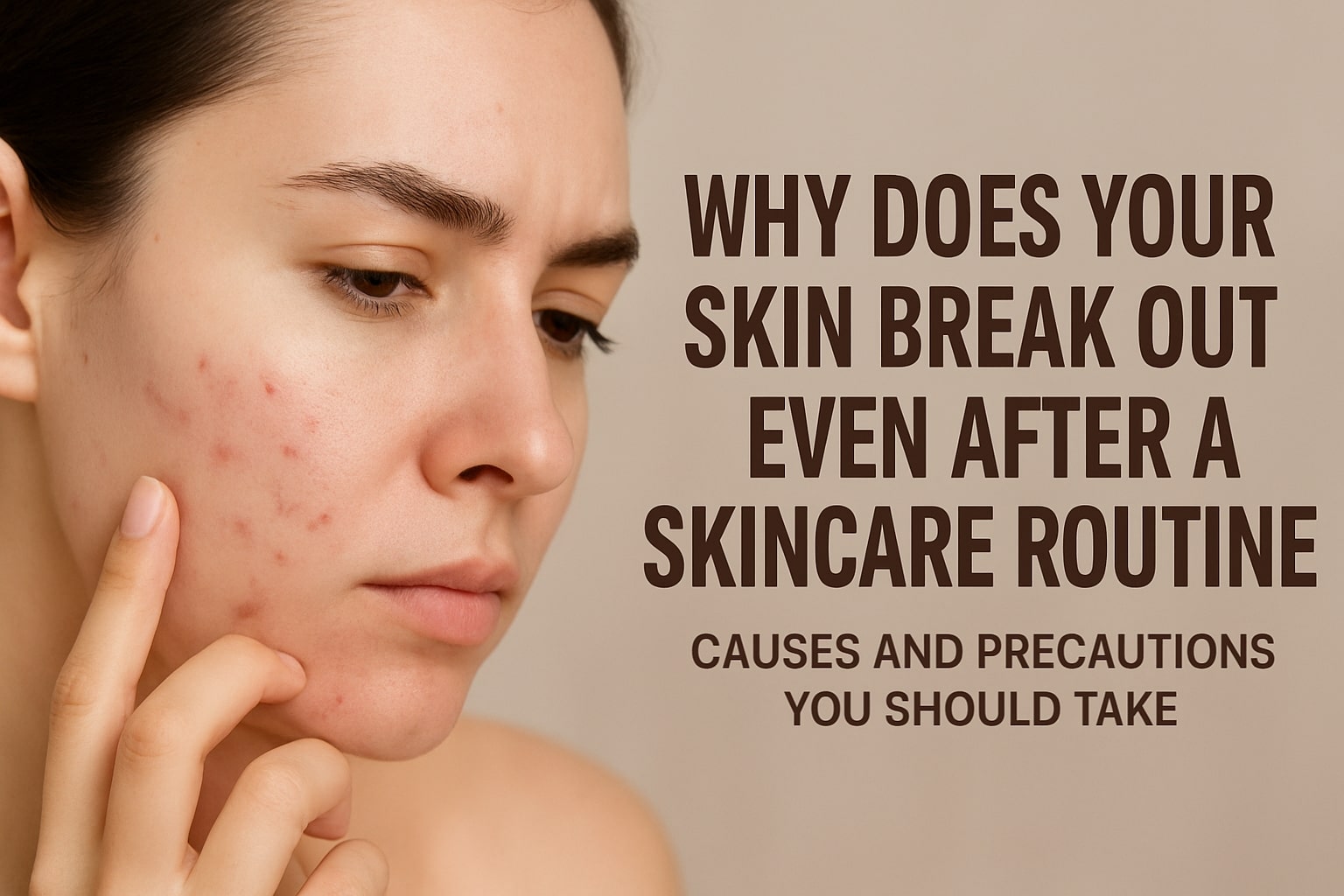Many people commit to a regular skincare routine expecting flawless, glowing skin. But what happens when breakouts still appear despite cleansing, moisturizing, and using the “right” products? The truth is, acne isn’t always caused by poor skincare. Several internal and external factors can trigger pimples, and understanding them is the first step to clear skin.
1. Hormonal Changes
Hormones play a major role in acne. Fluctuations during menstrual cycles, pregnancy, stress, or conditions like PCOS can increase oil production, leading to clogged pores and breakouts.
2. Using the Wrong Skincare Products
Not all skincare is created equal. Heavy creams, oily formulas, or products with comedogenic (pore-clogging) ingredients can trigger acne even if they claim to be “skin-safe.”
3. Over-Cleansing and Over-Exfoliating
Washing or scrubbing too often strips the skin of natural oils. In response, your skin produces more oil, which can lead to breakouts.
4. Lifestyle Habits
Touching your face frequently, sleeping on dirty pillowcases, or not cleaning makeup brushes can transfer bacteria and dirt to your skin.
5. Diet and Gut Health
Foods high in sugar, dairy, and refined carbs are often linked with acne flare-ups. Poor hydration and digestive issues may also affect skin health.
6. Stress and Lack of Sleep
Stress hormones (like cortisol) stimulate oil glands, while inadequate sleep slows down skin repair, making breakouts worse.
7. Underlying Skin Conditions
Sometimes breakouts are not typical acne. Issues like fungal acne, rosacea, or allergic reactions may look similar but require different treatments.
✅ Precautions to Prevent Breakouts
1. Choose the Right Products
- Opt for non-comedogenic, fragrance-free, and gentle skincare.
- Limit exfoliation to 1–2 times per week.
- Double cleanse if you wear makeup or sunscreen daily.
2. Practice Good Hygiene
- Change pillowcases every 2–3 days.
- Wash makeup brushes and sponges weekly.
- Clean your phone screen regularly.
3. Maintain a Healthy Lifestyle
- Avoid touching your face unnecessarily.
- Get at least 7–8 hours of sleep each night.
- Manage stress with yoga, meditation, or regular exercise.
4. Eat Skin-Friendly Foods
- Cut back on sugary, fried, and processed foods.
- Drink plenty of water throughout the day.
- Add fresh fruits, leafy greens, and omega-3-rich foods (like nuts and fish) to your diet.
5. Be Patient and Consistent
Skincare takes time. Stick with your routine for at least 6–8 weeks before judging its effectiveness.
6. Consult a Dermatologist
If breakouts persist, become painful, or turn cystic, it’s best to seek professional advice. A dermatologist can identify underlying causes and recommend suitable treatments.
Final Thoughts
Breakouts despite a skincare routine can be frustrating, but they’re not uncommon. Acne is influenced by hormones, lifestyle, diet, and hygiene in addition to the products you use. By making small changes and taking consistent precautions, you can manage acne more effectively and move closer to achieving healthy, glowing skin.

